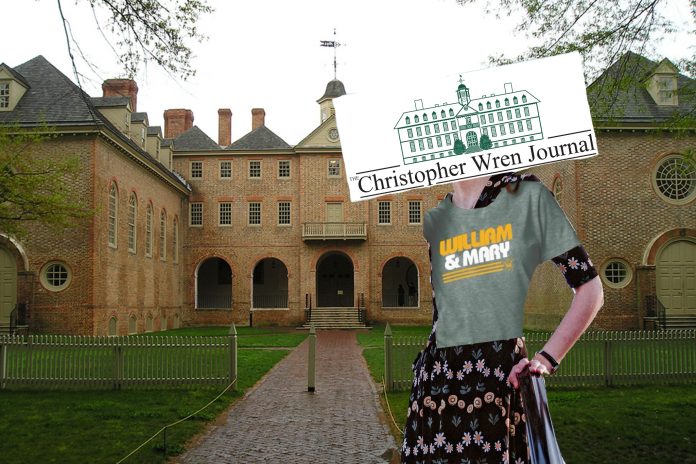Disclaimer: this is not news. This is part of the Fat Head, a Flat Hat senior tradition in which the outgoing editors dunk on themselves, the College, and the student culture here. Again, this is not news. If you treat it as such, that’s on you. Any resemblance to characters, real or fictional, is purposeful and malevolent. We warned you.
When the United States Constitution was written and ratified, Americans were given different rights, freedoms and a system of government among other things. One of the most important additions to the Constitution was the first amendment, guaranteeing freedom of speech. Now I may not know much about the Constitution, the amendments themselves, the history of their interpretation, or anything else related to constitutional law, but I know how to use google. And after extensive internet research (about 10 minutes) on the first amendment, I can confidently say in this newspaper piece being published and available for anyone to read: I am being silenced.
It all started during my freshman year of college at William and Mary. In my freshman seminar, I was in the midst of a particularly interesting discussion about World War I with classmates. I decided to pull one of my favorite discussion moves: play devil’s advocate. This was something I did alllll the time in high school, with resounding positive results. For example, in any one of my HS classes, I would play devil’s advocate. My argument was so intelligent and strong that everyone else would agree with me, or just stay quiet because I had already made the best points.
Naturally, I expected the same respectful form of intellectual discussion to continue in College. Imagine my shock then, when after playing devil’s advocate in the discussion about World War I, a classmate raised their hand and disagreed with me. Then other students raised THEIR hands and expressed how they disagreed with me. It was, for lack of a better term, a vehement pile-on. Most shockingly, the professor didn’t do anything to stop this first amendment violation happening before her very eyes.
After this harrowing experience, my enthusiasm for respectful class discussion and sharing my opinions on all topics began to wane. I began to feel hesitant to speak up in class – afraid that a classmate would try to silence my freedom of speech.
This silencing is not an uncommon phenomenon. Tens of other students across the country report feeling the same way in a poll conducted by my editor. In the poll, 8 out of the 10 students solicited for comment said they might have self-censored one of their opinions one or more times in their lives – an extremely concerning result. One student I talked to, Gemma Cramp, said she was afraid of backlash.
“In one of my English classes, I told the class how women belong in the kitchen and JK Rowling is a human rights hero,” Cramp said. “The room got very tense – people vocally disagreed with me. It was extremely traumatizing.”
Professor of Sociology, with a focus on hate speech directed towards conservatives at the University of Phoenix, Dr. Leo Spaceman, said the environment at Universities today has completely changed from when he was in college.
“Honestly, back in my day we would have good old-fashioned debates every night in our fraternity living room,” Spaceman said. “Just 3 white guys, debating the pros and cons of racism. Sometimes someone might get a little angry, but just hearing those new and different ideas was life changing for me.”
This issue of student’s free speech being taken away in college classrooms is an extremely important one. I am on the frontline, fighting against this problem and using my powerful voice to speak up against oppression. Some may compare me to Martin Luther King Jr, and I will humbly accept that comparison. I have tried to be brave, to be courageous, but I can’t fight alone.
Universities must resist this attempt to silence the opinions of some of their students and take action to make sure no one can have their free speech taken away.

